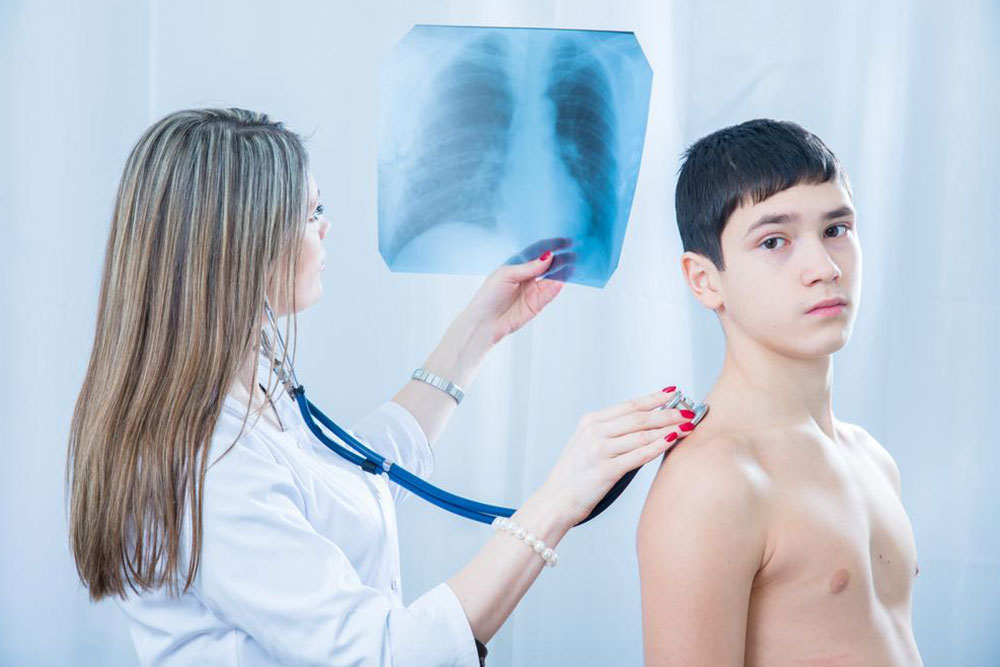Comprehensive Guide to Pneumonia: Symptoms, Causes, and Prevention Strategies
This comprehensive article explores pneumonia in detail, covering its causes, symptoms, risk factors, prevention strategies, and treatments. It emphasizes the importance of early detection and vaccination in managing this potentially life-threatening lung infection, especially among vulnerable populations. Learn how to identify symptoms early and adopt healthy lifestyle habits to reduce risks and improve outcomes.

Comprehensive Guide to Pneumonia: Symptoms, Causes, and Prevention Strategies
Pneumonia is a serious respiratory illness caused primarily by infections, including bacteria, viruses, and fungi, that inflame the air sacs in the lungs. This condition can manifest in various severities, from mild discomfort to life-threatening complications. It is one of the leading causes of hospitalization worldwide, especially among vulnerable populations such as the elderly, young children, and those with weakened immune systems. Understanding its causes, symptoms, and methods of prevention is crucial for early detection and effective management.
**What is Pneumonia?**
Pneumonia is an infectious disease that affects the lungs' alveoli—the tiny air sacs responsible for oxygen exchange. When these sacs become inflamed or filled with fluid, the body's ability to oxygenate blood is compromised, leading to breathing difficulties and other systemic symptoms. While bacteria are the most common culprits, viruses and fungi can also cause pneumonia. The disease can impact one or both lungs and is categorized based on its onset and settings: community-acquired pneumonia, hospital-acquired pneumonia, and aspiration pneumonia.
**Common Causes and Risk Factors**
The primary cause of pneumonia is microbial invasion, with Streptococcus pneumoniae being the most common bacterial pathogen. Viral agents like influenza, respiratory syncytial virus (RSV), and coronaviruses (including COVID-19) also contribute significantly. Fungal pneumonia, though less common, often affects immunocompromised individuals. Several factors predispose individuals to develop pneumonia, including smoking, chronic respiratory diseases (like COPD), poor nutrition, age over 65 or under 5 years old, and immunosuppressive conditions such as HIV/AIDS or chemotherapy treatments. People living in crowded conditions with limited access to healthcare are also at increased risk.
**Recognizing the Symptoms of Pneumonia**
Early detection of pneumonia is vital for effective treatment. Symptoms can vary based on age, overall health, and the causative agent. Common signs include persistent cough that may produce phlegm or pus, chest pain that worsens with breathing or coughing, and shortness of breath or rapid breathing. Other typical symptoms are fever, chills, sweating, fatigue, and muscle aches. Gastrointestinal symptoms such as nausea, vomiting, diarrhea, or abdominal pain may also occur. In elderly patients, confusion, fatigue, or a sudden decline in functional status often signals pneumonia, sometimes before respiratory symptoms become prominent. Children might present with high fever, lethargy, or difficulty eating.
**Complications and When to Seek Medical Care**
If left untreated, pneumonia can lead to serious complications such as pleural effusion, lung abscess, respiratory failure, or bloodstream infections (sepsis). Individuals with underlying health conditions or weakened immune systems are at higher risk of severe outcomes. Recognizing symptoms early and seeking prompt medical attention is essential. Chronic symptoms like persistent cough or worsening shortness of breath should not be ignored. Diagnosis typically involves chest imaging (X-ray), blood tests, and sputum analysis to identify the causative pathogen. Hospitalization may be necessary for severe cases, especially those with breathing difficulties or complications.
**Prevention Strategies**
Preventing pneumonia involves multiple measures aimed at reducing risk factors and enhancing immunity. Vaccination is a critical step, with Pneumococcal vaccines and annual influenza vaccines recommended for high-risk groups. Maintaining good personal hygiene, such as frequent handwashing and wearing masks during flu seasons, can limit transmission. Quitting smoking and managing chronic respiratory diseases also reduce susceptibility. Ensuring proper nutrition and adequate sleep supports a robust immune response. For vulnerable populations, timely medical intervention at first signs of respiratory infections can prevent progression to pneumonia.
**Treatment Options**
Treatment depends on the pneumonia type and severity. Bacterial pneumonia typically responds to antibiotics tailored to the specific pathogen, while viral pneumonia may require antiviral medications or supportive care like oxygen therapy. Fungal pneumonia necessitates antifungal drugs. Supportive treatments include rest, hydration, and fever management with medications like acetaminophen or ibuprofen. Severe cases often require hospitalization, supplemental oxygen, and sometimes mechanical ventilation. It’s important for patients to complete their prescribed therapies and follow healthcare provider advice to prevent recurrence or complications.
**Living with Pneumonia: Long-term Outlook**
Most healthy individuals recover fully with appropriate treatment. However, some may experience lingering symptoms like fatigue or cough for several weeks. Chronic lung conditions may be exacerbated by pneumonia, necessitating ongoing medical management. Developing a healthy lifestyle, including smoking cessation, regular exercise, and balanced nutrition, can improve lung health. Regular health check-ups are vital for at-risk groups to monitor and manage any underlying conditions that could predispose them to respiratory infections.
In conclusion, pneumonia remains a significant health concern worldwide. Its symptoms can range from mild to severe, demanding awareness and prompt treatment. Prevention through vaccination, hygiene practices, and lifestyle modifications plays a crucial role in reducing its incidence. Early diagnosis and appropriate medical care can prevent serious complications and improve recovery outcomes. Staying informed about the risks and symptoms of pneumonia is essential for maintaining respiratory health and overall wellbeing.





